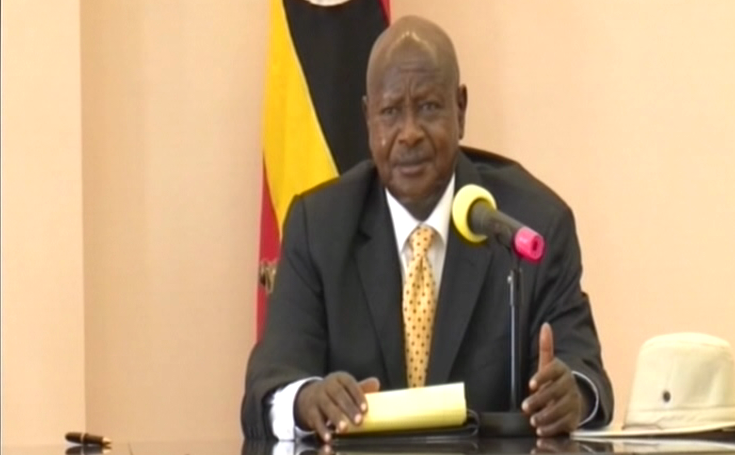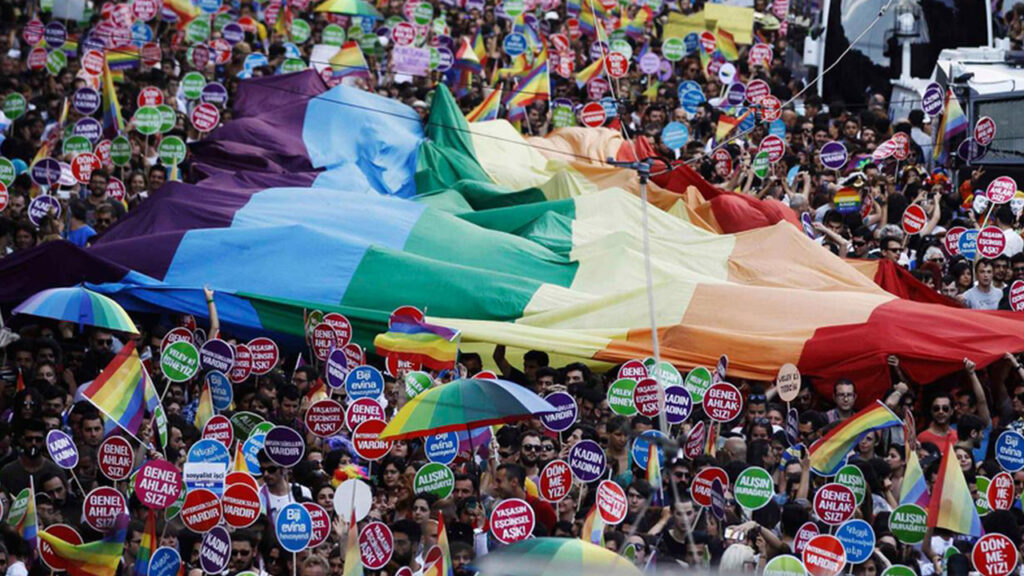Robin Fleming
During Pride month, we once again see that Turkey always gets a pass from the West and its’ NATO allies, often escaping with a small slap on the wrist when another country would get a swift and harsh response for the same crime. One clear example of this is Turkey’s, specifically Turkish President Recep Tayyip Erdoǧan’s Justice and Development Party (AKP)’s, famously negative approach to the LGBT community.
In May of 2023, the White House released a statement addressing the passing of a new anti-homosexuality bill in Uganda. The statement was a strongly worded condemnation of the new law, referring to it as a “shameful Act” and saying it is “the latest development in an alarming trend of human rights abuses and corruption in Uganda.” But it wasn’t only empty words, the White House also seriously threatened economic sanctions and other restrictions on Uganda and Ugandan officials should this law not be revoked –
“And we are considering additional steps, including the application of sanctions and restriction of entry into the United States against anyone involved in serious human rights abuses or corruption.”

On 16 June, earlier this week, the White House carried out some of the punishments it has previously warned of by imposing restrictions of Ugandan officials wanting to travel to the US.
It seems like a positive step, after all the law is believed to be one of the harshest anti-homosexuality laws in the world as it brings a life-sentence for anyone convicted of same sex sexual activity, and carries the death penalty for ‘aggravated homosexuality’ or a sexual act which transmits HIV-Aids. But if America’s current administration is truly trying to ensure global human rights and safety for the LGBT community, as their recent actions would imply, why has Turkish President Erdoǧan been not only getting away with extreme homophobic rhetoric and policies, but congratulated on his re-election by the same US officials who have previously been ever-so concerned with gay rights?

Pride celebrations in Turkey have been consistently marred by police violence and repression, as seen on 18 June when Istanbul police prevented LGBT people from gathering in Taksim square using barricades and detaining everyone who tried to enter the protest space. Last year, during Pride in Ankara, over 40 attendees were detained, many of them violently, and tear gas was used against peaceful demonstrators. These acts of repression and violence are not anomalies but are directly inspired by President Erdoǧan and the ruling AKP. Homophobic rhetoric and thinly veiled threats against the LGBT community were scattered through Erdoǧan’s campaigning leading up to May’s presidential elections.
“The essential issue that those caring for the problems of women, young people and children in our country is the pervert movements that threaten our children all together,” said the Turkish President, using the term ‘pervert movements’ referring to the LGBT community. “God willing, we will fight against those big threats more vigilantly.”
The governing AKP has also been known to openly support hate-groups in Turkey, such as a demonstration in September of 2022 which called for war against LGBT people. Those attending this march referred to gay people as ‘filth’ and ‘perverts’. The demonstration was advertised on state television channels, where as Pride marches are restricted, often banned and always encounter police violence.
When we see the United States continue to refer to Erdoǧan’s openly homophobic government as an important NATO ally, but fiercely condemn the same homophobic stance in another country such as Uganda its impossible not to see that the US is simply using gay rights as a tool of convenience – to control and criticise those they already wanted to criticise and to let it slide when it doesn’t suit their interests. Erdoǧan knows this, history has proven it. The United State’s double standards for democracy, minority and gay rights plays right into Erdoǧan’s regime’s favour and will continue to do so until the United States decides to take a stronger stance for the principles they pretend to uphold even when it may be strategically inconvenient for them.










